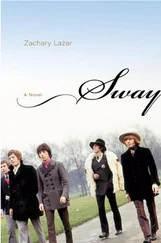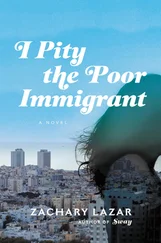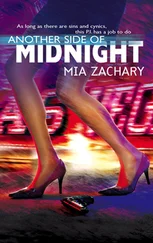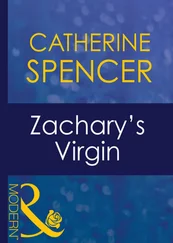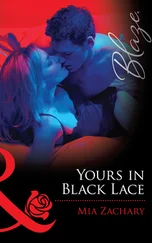*
I sold the Stratocaster. We got married. City hall, church, restaurant, guests, relatives, dancing, photos, videos — we went through all of it. We did it because we needed the money for America.
We were both admitted as graduate students at Ohio State University to complete our master’s degrees in literature. We borrowed more money from friends and relatives, paid the first semester’s tuition, and took off.
It was my first time on a plane. We first flew to the Czech Republic and then to America. Somewhere in the white clouds above Prague, I felt some kind of lightness, unfamiliar lightness. It was liberating.
We landed in Columbus late at night. The air was cool, innocently clean, and filled with unknown scents. In the sky above the airport, a two-tailed comet shared the night with myriad tiny stars and a few airplanes. This comet would be visible for two more weeks. Then it would go on its way and appear again in twenty-some centuries, explained the chubby cab driver while he helped us fit our luggage into the trunk of the yellow car.
The next morning we walked down foreign streets and inhaled the springtime air of Ohio. The earth was beginning to soften, the soil breathed out warmth, squirrels ran up the trees, wild geese swam in the ponds, passersby smiled at us, and we smiled back.
To my academic program, I added two photography classes. Stella would go to school early in the morning. She started working in the library in the afternoons and painting in the evenings in the loft of an old factory building that had been taken over by some fellow artists. I spent my days in the university and in the photo lab. Then, by pure luck, I found a bartending job. I started making decent money, which paid for my education. Besides, I was freelancing as a photographer here and there, which brought us some income as well. My only free hours — from midnight until eight in the morning — I spent in the uniform of a security guard at a Budweiser plant, dozing off — dizzy from the smell of hops and the immense scale of my own plans. I can’t remember ever being busier. Stella and I hardly saw each other.
Then I met Ken. The money I made with him was enough to buy my first professional photo equipment and quit one of my jobs. I felt strong, bursting with energy. I knew that something glorious awaited me somewhere.
*
I find a payphone and call Danny again.
“Listen, bro. I need to ask you two things, right off the bat,” he says.
“Go ahead.”
“First, does Stella know anything about this?”
“Stella is not here.”
“Does she know about this?”
“No.”
“Do you understand what you’re risking?”
“Oh, please.”
“You should be shot.”
“I know. Someone tried already.”
“Is there a way to talk you out of this nonsense?”
“No.” I answer. On the other end — silence. Then:
“OK. Let me tell you that I’ll do this for you just this one time, OK?”
“OK.”
“No! I really want you to promise me that this is a ‘one-time-only’ deal and that it will never happen again.”
“I promise!”
“What do you promise?”
“It won’t happen again.”
“OK, then.” Danny sounds as if he’s trying to suppress his excitement. “I spoke with Boss.”
“Oh, the Boss?”
“Yes, the Boss. His name is Boss. Victor Boss.”
“Well? What did Boss say?”
“Well. . it’s serious.”
“What is?”
“The whole thing.”
“The whole thing?”
“Yes.”
“Really?”
“It’s serious.”
“You just told me that.”
“Listen, man, you normally don’t buy things like that from strangers. Who knows who you are? Plus. . the guy has his own supplies. . Plus, in this business everybody knows everybody. I’m at the bottom of the ladder. In principle, it’s not impossible to take care of the whole thing at once, but. .”
“What? How much money can we make?” I ask the most important question.
“That depends, demand and supply, the quality of the weed and so on. If everything’s fine and the marijuana is as good as you describe it, we’re talking about approximately fifty grand.”
“Fifty?” I exclaim, slightly disappointed.
“Fifty, if everything’s cool, if it’s excellent! That’s the high number.”
“How about the low one?”
“I can’t say until you come here. It might be twenty. It’s between twenty and fifty. But there’s also something else.”
“What?”
“Victor is not in New York now. Something’s happened and he flew to the West Coast yesterday. He’s not coming back until the end of the week.”
“Oh,” I calculate in my mind. “Well, I thought I could be in New York the day after tomorrow.”
“From California? In just three days?”
“Why not? I’m fast.”
“You shouldn’t be going so fast with what’s in your trunk. You can come over whenever you want, but the guy won’t be here before Saturday night.” I can hear Danny turning the pages of a calendar in his apartment. “Saturday. . is actually Halloween! What will you be for Halloween?”
“The Boogie Man.”
“Zack. . drive safely.”
“Danny?”
“Yes.”
“Thanks a lot!”
“Take care.”
Danny and I go way back. I heard my first AC/DC song—“Dirty Deeds”—on his older brother’s turntable. We smoked our first Dunhills together, and I was hiding in the walk-in closet of his room when he tried to have sex with his first girl. He used to draw these beautiful horses. He was a good artist and everybody knew it. He emigrated when he was eighteen and escaped mandatory military service.
*
Armed with good equipment, I started collecting a portfolio of images with which I intended to enter mainstream advertisement photography. I made up different products and took not only the photo ads for them, but also came up with whole advertising strategies — including logos, narratives, faces, imagery, and music. I spent every possible minute with the best photography books, learning from the biggest names in the business. I studied the techniques and images of photographers and artists from centuries ago to the present. I compared the light from seventeenth-century Rome in the paintings of Caravaggio to the light of mid-twentieth-century New York in the photos of DeCarava. I searched for what all the great masters had in common. I was most interested in the human face. To me, even the most boring face in Robert Frank’s photos was more interesting than the most beautiful Ansel Adams landscape. What was it that could turn a face into a magnificent image? I diligently searched for the principles of iconicity. I knew they existed. I put my portfolio together carefully, going through hundreds of photo sessions, models, objects. Of course, Stella was in the silver emulsion of thousands of my negatives. What I wanted was to move to the West Coast as soon as we graduated from Ohio State. I started applying for positions in several places in L.A. and San Francisco. I exchanged e-mails, letters, and phone calls with art directors of fashion magazines who seemed interested in my images. Stella, on the other hand, had scheduled a few job interviews with various universities. We knew our time was coming and we had to make the leap.
Then we decided to visit New York for a couple of days before moving out West.
*
At seven I’m in the car because I have to leave L.A. before the traffic really thickens. I take I-10 East. The sun is already up and glinting on the backs of the cars in front of me. I try to find a radio station that doesn’t irritate me. I know that every ten or fifteen minutes I’ll have to deal with the next attack of ads — something I have never learned to ignore after all these years in America. Most likely I never will. The locals handle this as if they have an implanted chip that switches their attention on and off during commercial breaks. Maybe this mechanism is formed in the first early years of television watching. I’m missing the “first seven” in this respect. I grew up somewhere else, with a different kind of television. There — I remember — we had similar reactions to the communist propaganda, which, just like the commercials here, kept the system going.
Читать дальше




